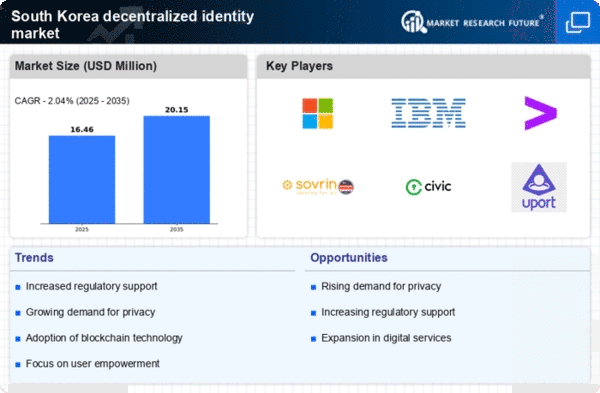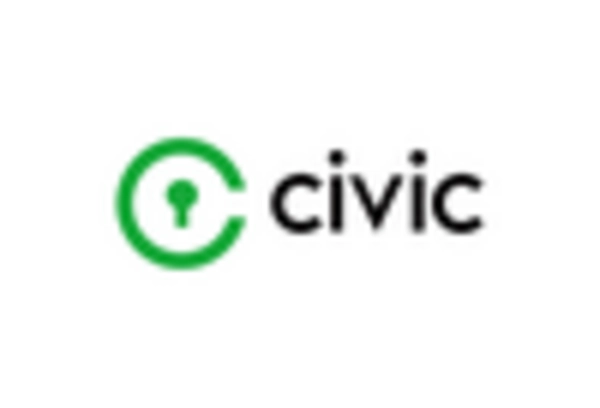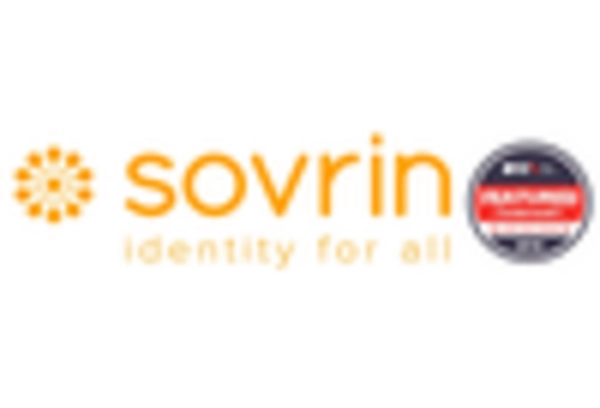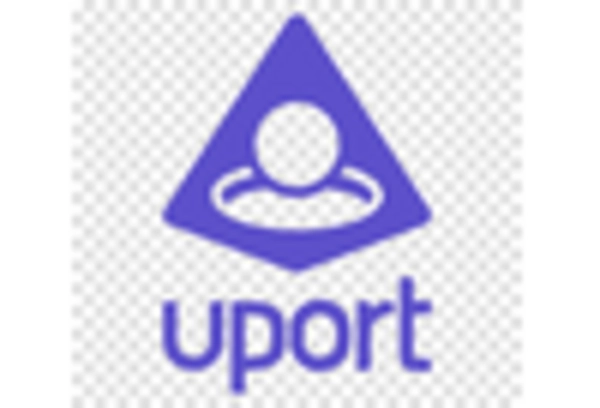Consumer Awareness and Education Initiatives
As awareness of data privacy issues grows among South Korean consumers, there is a corresponding increase in interest in decentralized identity solutions. Educational initiatives aimed at informing the public about the benefits of decentralized identity systems are becoming more prevalent. This trend is likely to drive demand within the decentralized identity market, as consumers seek more control over their personal information. Surveys indicate that approximately 70% of South Koreans express concerns about data privacy, suggesting a strong market potential for solutions that empower users. Consequently, businesses that prioritize consumer education and transparency may find themselves at a competitive advantage, further propelling the growth of the decentralized identity market.
Rising Demand for Secure Digital Transactions
The increasing reliance on digital transactions in South Korea has led to a heightened demand for secure identity verification methods. As e-commerce and online services proliferate, the decentralized identity market is positioned to address concerns regarding data breaches and identity theft. In 2025, it is estimated that online retail sales in South Korea will reach approximately $100 billion, underscoring the necessity for robust identity solutions. The decentralized identity market is likely to benefit from this trend, as businesses seek to enhance customer trust and streamline verification processes. Furthermore, the integration of blockchain technology is expected to provide a secure framework for managing digital identities, thereby fostering consumer confidence in online transactions.
Collaboration Between Private and Public Sectors
The collaboration between private companies and public institutions in South Korea is fostering innovation within the decentralized identity market. Partnerships aimed at developing and implementing decentralized identity solutions are becoming more common, as stakeholders recognize the mutual benefits of shared resources and expertise. This trend is likely to enhance the overall effectiveness of identity verification systems, making them more accessible to a broader audience. The decentralized identity market may witness a significant increase in project funding, with estimates suggesting that collaborative initiatives could attract upwards of $500 million in investments over the next few years. Such collaborations are expected to drive technological advancements and expand the market reach of decentralized identity solutions.
Regulatory Support for Digital Identity Solutions
The South Korean government has been actively promoting the adoption of digital identity solutions to enhance security and efficiency in various sectors. Recent regulations have encouraged the development of the decentralized identity market, aiming to create a more secure digital ecosystem. For instance, the Ministry of Science and ICT has initiated projects to support blockchain-based identity verification systems. This regulatory backing is likely to stimulate investment in the decentralized identity market, as companies align their offerings with government standards. As a result, the market may experience accelerated growth, with projections indicating a potential increase in market size by 25% over the next five years, driven by favorable policies and public sector collaboration.
Technological Advancements in Identity Verification
The rapid evolution of technology in South Korea is significantly impacting the decentralized identity market. Innovations in biometrics, artificial intelligence, and blockchain are enhancing the capabilities of identity verification systems. For instance, the integration of biometric authentication methods is expected to improve security and user experience. The decentralized identity market is likely to see increased adoption of these technologies, as organizations strive to stay ahead of cyber threats. Market analysts project that the adoption of advanced identity verification technologies could lead to a 30% reduction in identity fraud cases by 2027, highlighting the potential for growth in this sector. As businesses leverage these advancements, the decentralized identity market may experience a surge in demand.
















